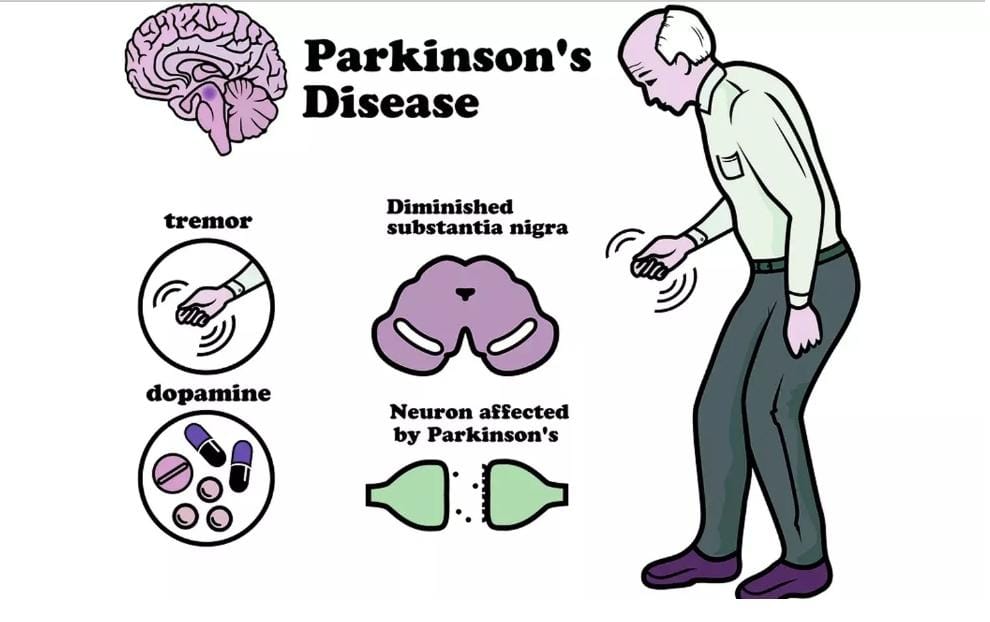
Contact Us
Online Appointments
- No exposure from potent chemicals.
- No withdrawal symptoms
- High efficacy rate
- Individualistic prescribing.
- Minimum dose.
- Rapid, gentle and permanent cure of disease.
- Holistic approach
- Painless process of treatment
- Availability of thousands of fully proved medicines on healthy human beings
- Economic medicines
Parkinson's Disease
Parkinson's disease is a neurodegenerative disorder that primarily affects movement. It occurs when certain nerve cells (neurons) in the brain gradually break down or die. These neurons produce dopamine, a chemical messenger that helps regulate movement and coordination. As dopamine levels decrease, individuals with Parkinson's disease experience symptoms such as tremors, stiffness, slowness of movement, and difficulty with balance and coordination.
Symptoms of Parkinson's Disease:
- Tremors: Involuntary shaking, often starting in one hand.
- Bradykinesia: Slowed movement and difficulty initiating voluntary movements.
- Muscle Rigidity: Stiffness in the limbs or trunk, which may cause discomfort or pain.
- Postural Instability: Impaired balance and coordination, leading to increased risk of falls.
- Changes in Speech: Softening of voice, slurred speech, or changes in speech patterns.
- Non-motor Symptoms: These may include cognitive changes (e.g., memory problems), mood disorders (e.g., depression or anxiety), sleep disturbances, and autonomic dysfunction (e.g., constipation or urinary problems).
Management of Parkinson's Disease:
-
Deep Brain Stimulation (DBS):
- Surgical procedure involving the implantation of electrodes into specific areas of the brain to alleviate motor symptoms.
-
Physical Therapy:
- Exercises and stretching routines to improve mobility, strength, and flexibility.
- Balance exercises to reduce the risk of falls.
-
Occupational Therapy:
- Focuses on adapting daily activities to maintain independence and quality of life.
- Provides assistance with activities of daily living (ADLs).
-
Speech Therapy:
- Helps address speech and swallowing difficulties through exercises and strategies.
-
Nutrition:
- A balanced diet to support overall health and well-being.
- Addressing swallowing difficulties with modifications to diet consistency or texture.
-
Psychosocial Support:
- Support groups, counseling, and education for individuals with Parkinson's disease and their caregivers.
- Addressing emotional and psychological aspects of the disease, such as depression and anxiety.
-
Regular Monitoring and Adjustment:
- Ongoing evaluation and adjustment of treatment plans by healthcare providers to optimize symptom control and minimize side effects.
-
Research and Experimental Therapies:
- Participation in clinical trials to explore new treatments, such as gene therapy, stem cell therapy, and neuroprotective agents.
Overall, managing Parkinson's disease involves a multidisciplinary approach tailored to the individual's specific symptoms and needs. With appropriate treatment, support, and lifestyle modifications, individuals with Parkinson's disease can maintain a good quality of life and manage their symptoms effectively.


